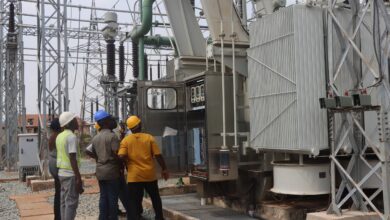Applauding The FG’s Proposed Capital Punishment For Power Vandals

The Federal Government has proposed capital punishment for vandals of power installations in Nigeria.
The government’s decision was following the deliberate and persistent destruction of the nation’s power assets built with the scarce resources of the country.
Minister of Power, Chief Adebayo Adelabu disclosed this while parleying with the Heads of Agencies under the Ministry on Monday, March 11, 2024.
He disclosed that “the Ministry of Power and agencies under it is pushing for capital punishment for those involved in vandalisation and power thefts of all forms”.
He contended that capital punishment was not too much for the vandals since they were gradually killing the nation; economy and people.
He lamented that the vandals were getting too much comfort all over transmission and distribution power assets, and not only frustrating the efforts of the government to achieve uninterrupted power supply, but driving the nation backward.
Just recently, the Transmission Company of Nigeria (TCN) disclosed that the vandals destroyed the Shiroro-Katampe 330kV transmission line supplying bulk electricity to the Federal Capital Territory (FCT), Abuja.
The incident which was the fifth recorded between February and March this year, according to the statement issued by the TCN’s General Manager, Public Affairs, Mrs. Ndidi Mbah, has further dashed the hope of achieving a stable power supply in the nation’s capital.
The GM said the incident has added to the series of vandalism incidents recorded by TCN in February 2024, including the destruction of Tower 70 along the Gwagwalade-Katampe transmission line on February 26, 2024.
Other incidents, according to her, include the vandalism of towers 377 and 378 along the Gombe-Damaturu 330kV transmission line on February 23, 2024, and the attack on towers 145 to 149 and 201 to 218 along the Owerri-Ahoda 132kV transmission line on February 15, 2024.
She added that on February 1, 2024, Tower number 388 along the Jos-Bauchi 132kV single circuit transmission line collapsed due to vandalism.
While noting that the acts of sabotage were unacceptable, she urged relevant security agencies and host communities to collaborate in apprehending the perpetrators, adding that the Protection of the nation’s transmission infrastructure was paramount, and collective efforts are required to curb the incidents.
TCN called on all Nigerians to assist in reporting such acts of vandalism, adding that electricity infrastructure is a national asset, and safeguarding it is a collective responsibility.
It should be noted the widespread menace occurs across various types of infrastructure, including power cables, transformers, and transmission towers.
The financial losses recorded from vandalism are also huge. For instance, the company (TCN) lost over N1.7 billion in 9 months to power asset vandalism in the north-east alone. This amount may have doubled recently because of the spate of the incident.
This is money that was supposed to have been strategically channelled to improve the power supply to Nigerians by building infrastructure across the country.
The ugly reality about this is that the money was secured as loans from development partners like the World Bank, Agence Francaise de Development (AFD), African Development Bank (AfDB), and Japan International Cooperation Agency (JICA).
Frankly, capital punishment is commendable considering the devastating effect of the activities of these economic saboteurs.
The punishment will not only be an antidote to the unwholesome activities, but will astronomically increase the power generation, transmission, and distribution nationwide.
Yes, we have had reports and experiences of the activities of these vandals in the past but have not been this pervasive, affecting households, businesses, and even the economy.
Nigeria may borrow a leaf from South Africa by enacting a law to protect critical infrastructure. In South Africa, President Cyril Ramaphosa signed a Critical Infrastructure Protection Act for the protection and safeguarding of critical infrastructure in the country. The law also allows for decisive action against people who destroy critical infrastructure.
Critical Infrastructure, according to the Act in South Africa, refers to any building, centre, establishment, facility, installation, pipeline, premises, or systems needed for the functioning of society, the government, or enterprises of the Republic.






